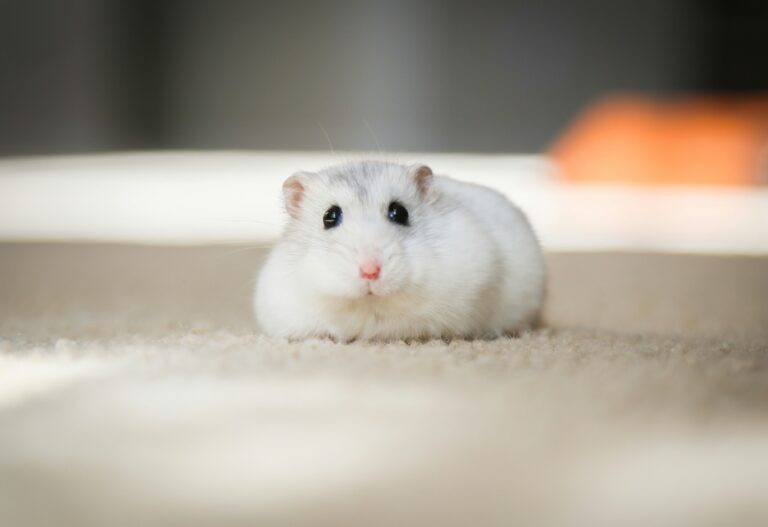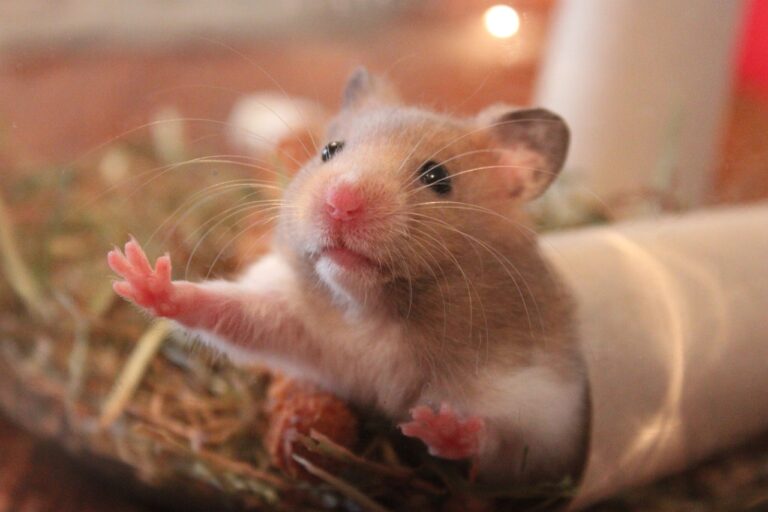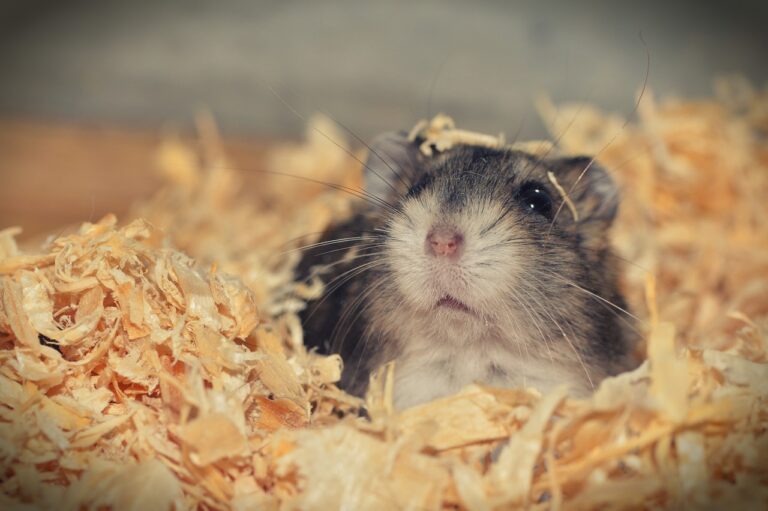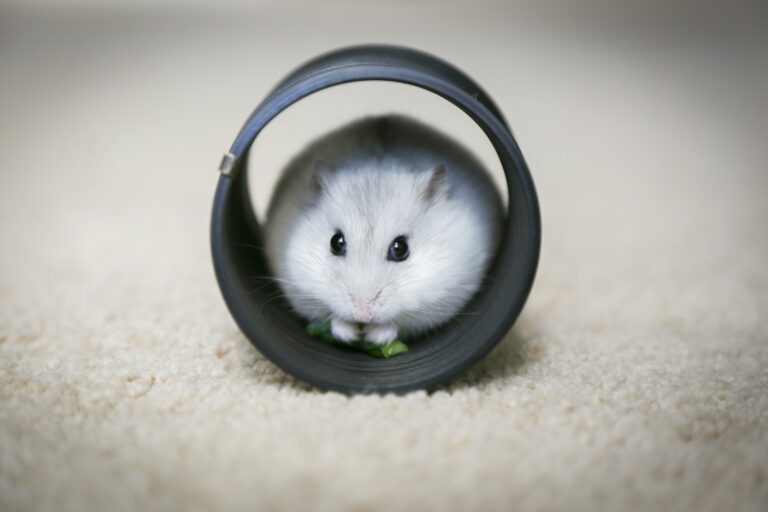Hamster Care 101: A Guide for New Owners

Welcoming a hamster into your home can be an exciting and rewarding experience. These small, furry rodents make wonderful pets, offering companionship and entertainment. However, proper care is essential to ensure the health and well-being of your new furry friend.
In this guide, we’ll cover everything you need to know to provide the best possible care for your hamster. From setting up their habitat to meeting their dietary and health needs, we’ve got you covered!
Choosing the Right Cage
Size: Select a spacious cage that provides ample room for your hamster to explore and exercise. A minimum of 24 inches long, 12 inches wide, and 12 inches tall is recommended for most hamster breeds, but the more space you provide them the better! Keep in mind that Syrian hamsters, being larger, may require even larger cages.
Bar Spacing: Ensure that the cage has narrow bar spacing to prevent escape. Hamsters are expert escape artists, and wide bar spacing can lead to injuries or loss. The ideal spacing should be no more than 1/2 inch apart.
Bedding: Use safe bedding material such as aspen shavings, paper-based bedding, or shredded paper. Avoid cedar and pine shavings, as they can be harmful to hamsters’ respiratory systems. Provide enough bedding for your hamster to burrow and create nests!
Accessories: Include essential accessories such as a water bottle, food dish, exercise wheel, hiding spots, and chew toys. Hamsters love to chew, so providing safe chew toys helps keep their teeth healthy and prevents boredom. Add tunnels, ramps, and platforms to encourage exploration and exercise!
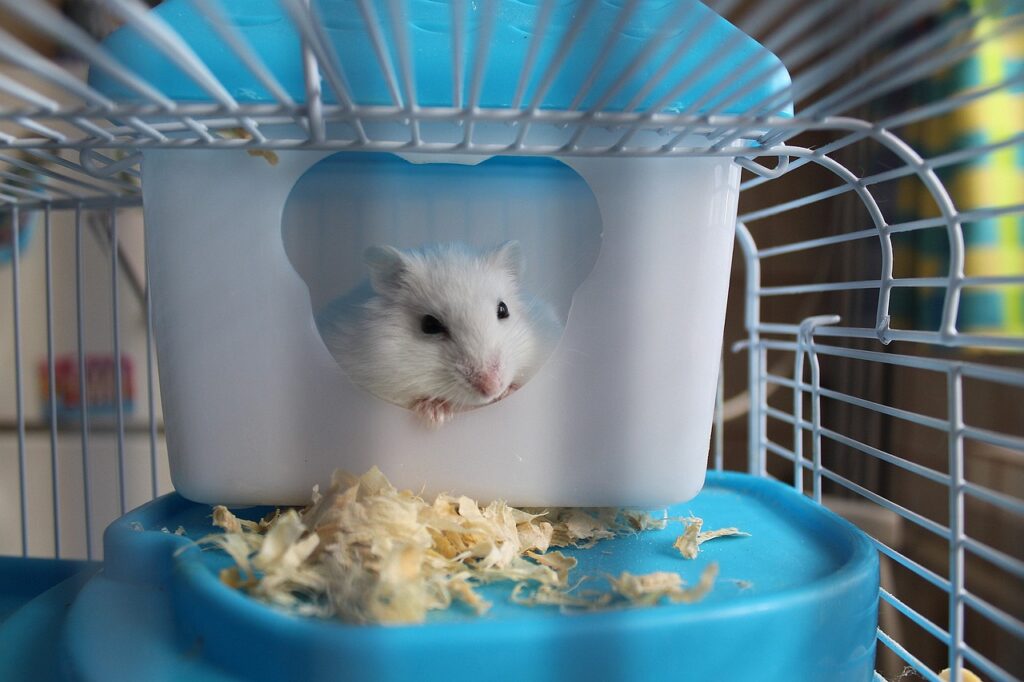
Nutritious Diet
Pellets: Choose a high-quality hamster pellet as the main component of your hamster’s diet. These pellets are specially formulated to provide the essential nutrients hamsters need for optimal health. Look for pellets that contain a balanced mix of protein, fiber, and vitamins.
Fresh Foods: Supplement your hamster’s diet with occasional fresh fruits, vegetables, and treats. Safe options include apples, carrots, broccoli, and small amounts of plain cooked chicken, plain cooked eggs, or mealworms. Avoid feeding sugary or fatty foods, as they can lead to obesity and other health issues. Introduce new foods gradually to avoid digestive upset.
Fresh Water: Provide fresh, clean water daily in a water bottle attached to the cage. Change the water regularly to prevent contamination and ensure your hamster stays hydrated. Check the water bottle daily to make sure it’s working correctly and hasn’t become clogged.
Habitat Maintenance
Cleaning: Spot clean the cage daily to remove soiled bedding and uneaten food. Perform a full cage cleaning at least once a week, replacing all bedding and cleaning the cage with a pet-safe cleaner. Remove any wet or soiled bedding promptly to prevent bacterial growth and odors.
Enrichment: Good hamster care involves keep your hamster mentally stimulated and physically active by providing enrichment activities such as tunnels, climbing structures, and puzzle feeders. Rotate toys and rearrange the cage regularly to prevent boredom. Offer different textures and materials for your hamster to explore, such as cardboard tubes, wooden blocks, and natural branches.
Temperature and Humidity: Maintain a comfortable temperature range of 65-75°F (18-24°C) and humidity level of 40-60% in the hamster’s environment. Avoid placing the cage in direct sunlight or near drafts, as extreme temperatures can be harmful to your pet. Use a thermometer and hygrometer to monitor temperature and humidity levels regularly.
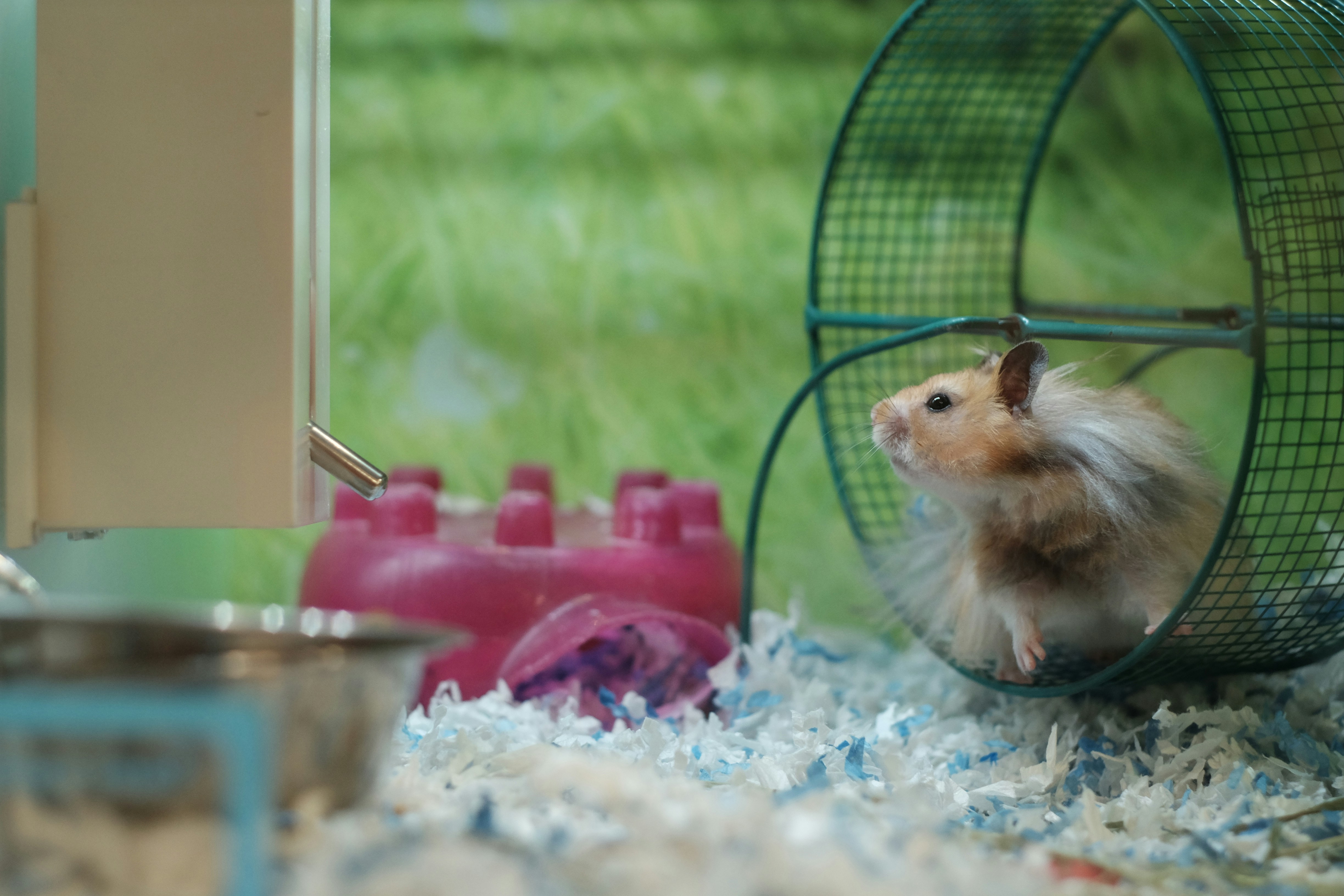
Handling and Socialization
Bonding: Spend time bonding with your hamster through gentle handling and interaction. Start with short handling sessions and gradually increase the duration as your hamster becomes more comfortable. Talk to your hamster softly and offer treats to create positive associations with handling!
Respect Their Space: Respect your hamster’s boundaries and avoid forcing them to interact if they seem stressed or reluctant. Always approach your hamster calmly and speak softly to avoid startling them. Pay attention to your hamster’s body language and cues to gauge their comfort level.
Socialization: While hamsters are primarily solitary animals, regular socialization with their owners is essential for their mental and emotional well-being. Handle your hamster daily to build trust and strengthen your bond. Encourage gentle interactions with family members and friends to help your hamster feel comfortable around different people.
Health Monitoring and Veterinary Care
Observation: Monitor your hamster’s behavior, appetite, and appearance daily for any signs of illness or injury. Common signs of health problems include lethargy, loss of appetite, diarrhea, and changes in appearance or behavior. Keep track of your hamster’s weight and note any changes, as sudden weight loss or gain can indicate underlying health issues.
Veterinary Check-ups: Schedule regular check-ups with a veterinarian experienced in small exotic pets. Your vet can provide guidance on preventive care, vaccinations, and treatment for any health issues that arise. Be proactive about seeking veterinary care if you notice any signs of illness or if your hamster’s behavior changes suddenly.
Emergency Preparedness: Familiarize yourself with common health emergencies in hamsters, such as wet tail or respiratory infections. Have a plan in place for accessing emergency veterinary care if needed. Keep important contact information for your vet and an emergency animal hospital readily available.
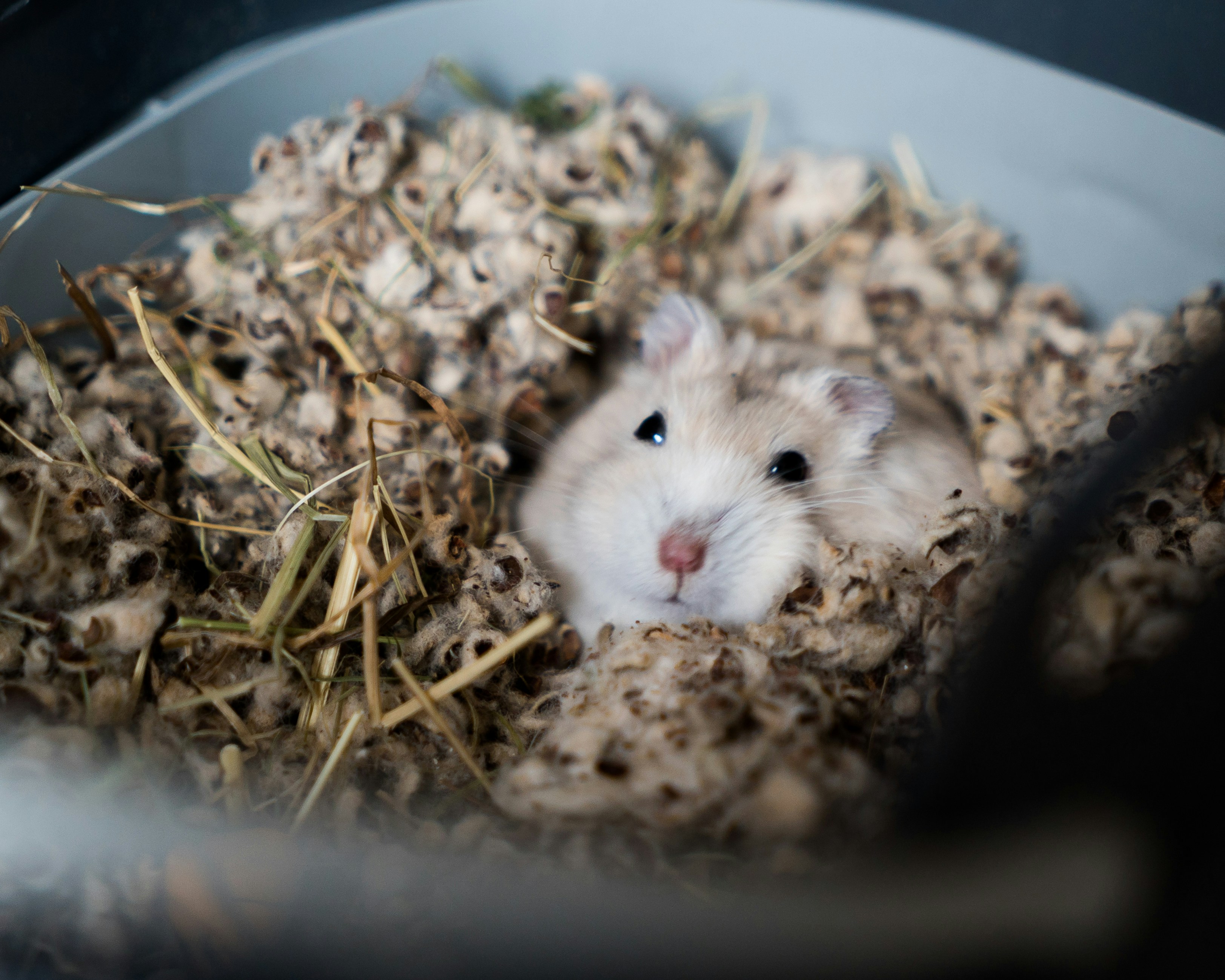
Conclusion
By following the tips and guidelines outlined in this guide, you can provide the best possible care for your hamster and ensure a happy, healthy life for your furry friend!
Remember to prioritize their physical and mental well-being through proper nutrition, habitat maintenance, socialization, and regular veterinary care. With love, patience, and dedication, you and your hamster can foster a strong bond that will last a long time!

